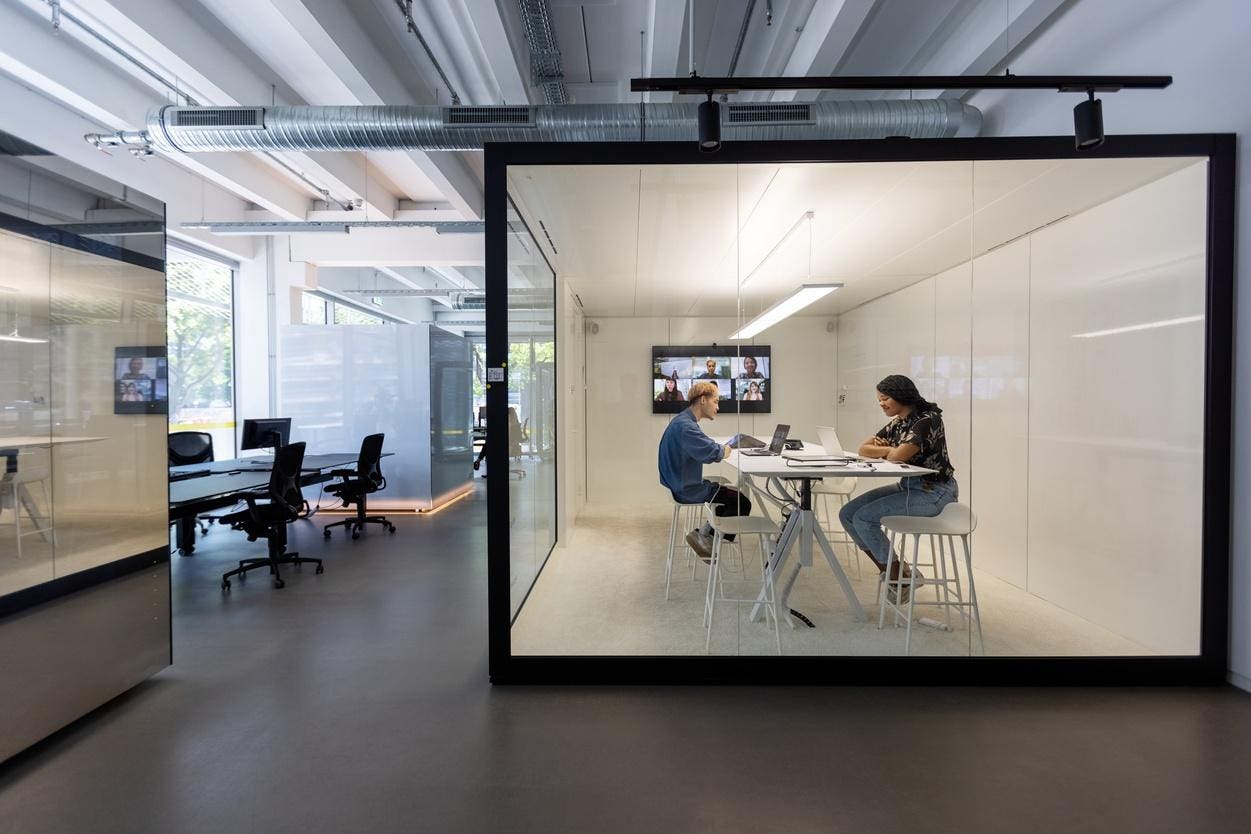Companies With Flexible Remote Work Policies Outperform On Revenue Growth::According to a new report, companies with flexible remote work policies outperform firms with more restrictive policies when it comes to revenue growth rates.
The article itself seem to cast doubt on the remote work policies themselves being the cause of the revenue growth, but that the remote work policies were more a symptom of the company’s culture (more trust in their employees). Though it could just be a chicken/egg thing, where the only reason these companies are so flexible and trusting with their employees is because the company is already doing well, whereas companies that aren’t doing well feel the need to “tighten belts” and start restricting things. To me, it almost seems like the canary in the coal mines. If a company starts restricting work from home, chances are there’s something else already going wrong.
For now, restrictions are mostly coming from companies that still have leases on big office spaces, and who don’t recognize a sunk cost fallacy when they see one. We’ll see how that plays out in the next few years as those leases expire.
Enter my employer, who recently was all too pleased to share with us that between now and when their lease is up in 3 years, two other agencies in our building have indicated they’re looking to scale back their space, which means my agency might have the “opportunity” to acquire more space in the building!
14% increase in productivity going from at will part time remote work (meaning many were full time at the office) to obligatory full time remote work for everyone. That means full time remote work is even better than flexible or whatever other hybrid bullshit employers try to impose on their employees.
As a mid career employee I love remote work. Reflecting on my early career development, I don’t know how I would have gotten to where I am without the in person interaction with more senior folks and my peers.
I’ve worked remote for 4+ years and could not see myself going back. I love being able to leave a meeting and hang with my wife & kids, even for 5 minutes, it makes my day better.
That said, many of the people that report to me are part of a co-contractor whose policy is essentially structured to force low performing assets into the office. I’m not quite sure how I feel about that, but in my role, I’ve seen it be successful for them.
Work from home is the future for businesses that 100% operate out of an office, and are basically only an office.
Why pay for a centralized building? Pay for upkeep? Pay taxes for the building?
Especially when the WFH model makes more money? Well, to the wealthy few they realize the soul-crushing work in-person model maintains their class status. This could upset their class structure, and they’re terrified of it.
But in a beautiful twist of fate for once, the legal decision to make growth the #1 goal of publicly traded companies is working against the class that instated them.
I’m popping a bottle of discounter champange when the ‘office-building-crisis’ starts
It’s definitely in the starting/fear of happening phase. In the US, I often see articles talking about the potential financial meltdown that empty office buildings are going to create.
deleted by creator
Hopefully they will become the desperately needed affordable housing.
They won’t.
It’s prohibitively expensive to convert office buildings into residential. So prohibitively expensive, in fact, that it’s often more cost effective to demolish the entire building and rebuild residential in its place.
(At which point, of course, the owner will have sunk so much into their investment that the cost of the brand new housing will be as high as they can possibly make it and still fill the place.)
Stop dreaming.
There’s probably always going to be a central administrative place for handling mail, holding sensitive documents, etc. But it can all be a lot smaller than it is now.
Someone tell all those tech startups or the tech megacorps or the traditional companies … Maybe just tell everyone :D
Watch everyone forget that correlation doesn’t equal causation when it confirms their biases.
I can only speak for myself. I work a hybrid schedule. I am far more productive when I work at home because I am much more comfortable and much less distracted.
In the pre COVID days when office was expected, I only was in the office 3.5 days a week. But it worked because everyone was there most of the time and for important meetings. It all broke with fully remote hiring during the pandemic. For those 3 days I’m in, only 33 percent of the team is in. What’s the point at that point when I can’t find a conference room to take constant remote calls. Hybrid everything is the worst of both worlds.
For me it is the other way around. At home too much distraction. In the office I can focus.
Why is why flexible hybrid schedules are the ideal. Let workers pick what work best for them.
Usually the same for me, although I can still be productive at home.
However, zoom meetings are terrible. May as well just have a phone call. But you can’t have 6 people hash out a problem online like you can around a conference table.
It strongly suggests either causation (WFH -> RG), reverse causation (RG -> WFH), or common causation (Some other factor ->WFH&RG).
Even if they didn’t, it’s just nicer for everyone involved. Don’t you want to work for a company that people like working at?
This proves that people don’t leave bad jobs, they leave bad bosses.
Alternative headline: Better run companies outperform
Study by company that makes remote work tools finds that remote work is good
Growth-growth-growth, more growth.
Degrow already.
Number must go up…
Big number better than small number, god, catch up. Pay attention.
Alternatively, “Companies that outperform on revenue growth can afford to have more flexible remote work policies.”
Nice
It’ll end up being something also to do with managers of places that permit wfh being more relaxed than in places that prevent it.









